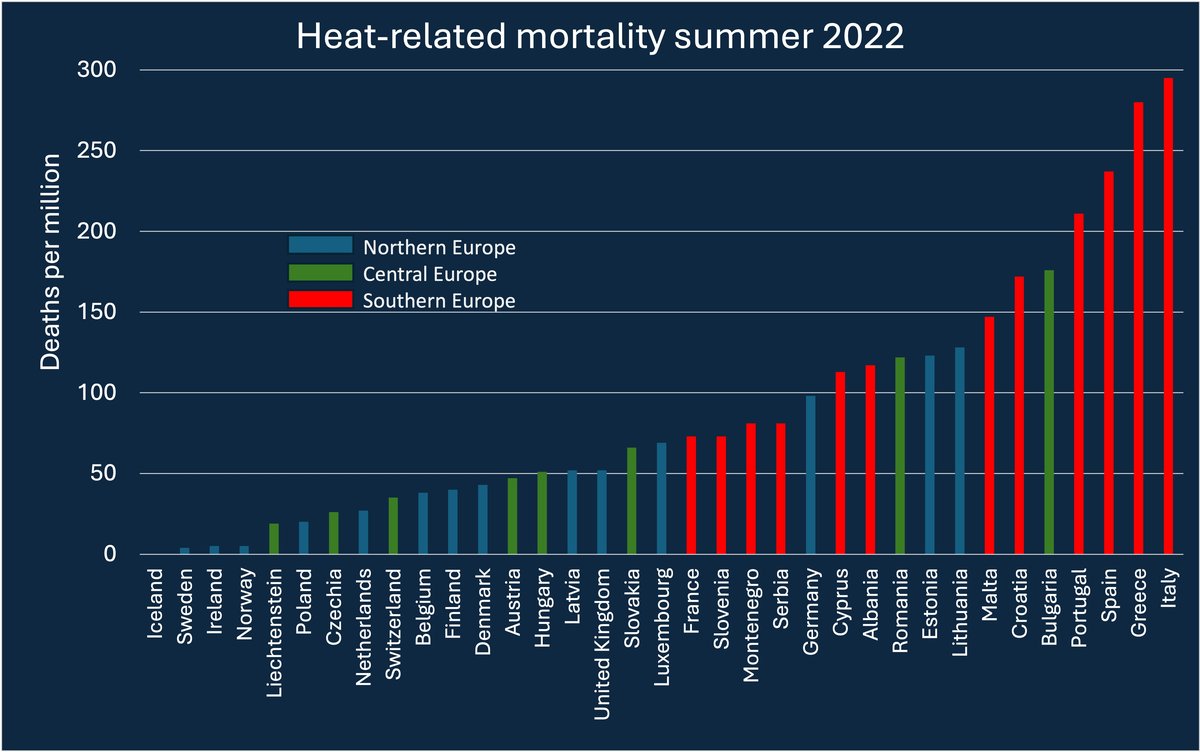Twenty years after the deadly heat of 2003, Europe’s heat response is still ineffective
January 29, 2024

Figure: Heat-related mortality per million people in the summer of 2022 was largest in Southern Europe (source: data in Ballester et al., 2023).
Over 60,000 heat-related deaths in 2022
The summer of 2003 is known for its large heat-related mortality. This summer's heat waves resulted in more than 70,000 additional deaths due to excessive heat. The resulting societal awareness led to the design and implementation of adaptation strategies to protect at-risk populations. Are these strategies effective? If so, you would expect an effect on heat-related mortality in the summer of 2022, the hottest season on record in Europe. However, it appears that heat-related mortality in the summer of 2022 did not differ much from the situation in 2003. From an analysis of these data experts concluded that heat prevention plans were only partially effective. The number of heat-related deaths in 35 European countries was estimated at over 60,000.
Mismatch heat and death numbers
In relative terms, the highest summer heat-related mortality rates were found in countries near the Mediterranean Sea, including Italy, Greece, Spain and Portugal. Remarkably, the geographical distribution of highest mortality rates did not match the distribution of temperature anomalies. Temperatures during the summer of 2022 were warmer than average in most of Europe, and the warmest summer temperature anomalies were registered in France and Switzerland. This illustrates the vulnerability of populations in Southern Europe that will be increasingly exposed to extreme summer conditions and would therefore be expected to experience increasingly higher heat-related mortality in the future.
Insufficiently prepared for heat
Since 2003, heat-related mortality has been a major concern in Europe. Europe is warming much faster than any other continent, and heat waves are the extreme weather events causing the highest number of attributable deaths. The authors of this study state that “past efforts toward an effective early adaptation response to observed warming, including preparedness and response strategies, intervention actions and heat-health early warning systems, had largely been insufficient to prevent the large magnitude of the heat-related mortality estimated for the summer of 2022”.
The ambition and effectiveness of heat prevention and adaptation plans urgently need to be increased, they conclude, especially as temperatures in Europe are rising faster than the global average, while the scale of heat-related mortality on the continent is high.
Source: Ballester et al., 2023. Nature Medicine 29: 1857-1866, doi: 10.1038/s41591-023-02419-z.








